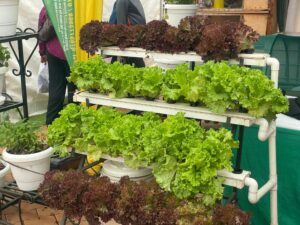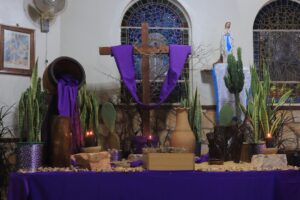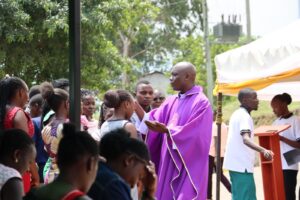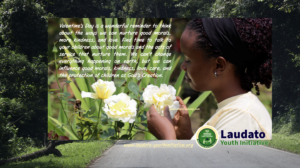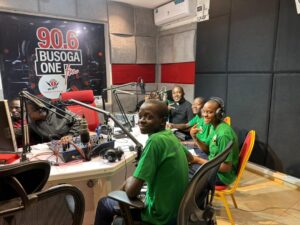By Br. Adolf Mugume, CSC | October 1, 2025.
Since the beginning of this year, several events have been organized around the world to mark the 10th anniversary of Pope Francis’ landmark encyclical Laudato Si’. To crown these commemorations, a global conference, Raising Hope for Climate Justice was held at Castel Gandolfo, Rome, from October 1st to 3rd, 2025. The event brought together a host of high-level leaders from civil society, science, politics, and faith communities. I was honored to participate in the opening ceremony, where His Holiness Pope Leo XIV inaugurated the conference and affirmed Laudato Si’ as an encyclical that continues to inspire people who are transforming the world.

The conference gathered an extraordinary assembly of voices, religious leaders, scientists, artists, politicians such as former California Governor Arnold Schwarzenegger, and civil society representatives, all united to reflect on the moral urgency of the climate crisis. They came together to share progress made and to chart bold, future-oriented actions for climate justice in the lead-up to the COP30 climate conference in Brazil.

My experience at this conference was deeply inspiring. It echoed my long-held desire to see the world truly unite for climate action. From the passionate calls of the speakers to the unified spirit among participants, there was a prophetic urgency in every word spoken, a call for collective responsibility and action. Just as Arnold Schwarzenegger noted in his opening remarks, “Together we can reach the goal,” so too do we at the Laudato Youth Initiative affirm, “United for Climate Action.” This conviction fuels our mission to form a climate-resilient generation and use faith, science and culture to witness integral ecology. As Pope Francis put it, we are interconnected and all talents are needed for peace to prevail. These values help our youth recognize the sacred interconnection that exists between humanity and creation.

Former California Governor Arnold Schwarzenegger
In his address, Arnold Schwarzenegger spoke powerfully about the importance of unity and the need to change the narrative in how we communicate the environmental crisis. He stressed the need for better messaging to help people understand the urgency of embracing ecological conversion at a heart level. He pledged to donate his time to work with both governments and grassroots movements on behalf of the environment, saying, “God gave me this gift that can communicate the issue; I have the will, and I can see it, and I will do everything that I can to make this a better world.” Referring to Pope Leo as a hero, he praised the Vatican for being the first carbon-neutral state in the world and remarked that those who move beyond words into action “are the true action heroes.” He further emphasized the Church’s immense potential, with 400,000 priests and 200,000 parishes worldwide, saying the Church holds “tremendous power” to effect change, especially if its leaders and members are educated and mobilized.
Addressing political leaders, he affirmed the critical role of governments in environmental efforts but cautioned that they cannot act alone. “They need everyone to participate,” he said. He used California as an example, citing the state’s booming economy despite having some of the strictest environmental laws in the United States. If California were a country, it would be the world’s fourth-largest economy, clear proof that environmental regulation and economic success can go hand in hand.
He closed by emphasizing the need for clear communication, a clear vision, and a clear goal. With these elements, he affirmed, “we can do it,” urging that the conference should empower people with a plan to act.

Pope Leo XIV and care for our common home
Pope Leo XIV, in his deeply moving address, expressed gratitude for the legacy of Laudato Si’, noting that the phrase “care for our common home” has become a guiding principle used across academic, political, and social spheres globally. He described Laudato Si’ as a gift that has inspired countless schools, dioceses, academic programs, and international dialogues, a legacy that organizations like the Laudato Youth Initiative seek to carry forward by promoting the ecological vision of Pope Francis.

In a Realm of Faith and Integral Ecology he called for conversion of “the heart”.
The Holy Father outlined how Laudato Si’ has influenced global conversations, from high-level summits like COPs, to interreligious dialogue, business and economic circles, as well as theological and ethical reflection. Most significantly, he emphasized that the encyclical’s message calls not just for policy change, but for a transformation of hearts. The spiritual crisis underlying the ecological crisis, he said, requires a conversion that is rooted in our innermost selves, “the heart is where the deepest searching takes place, where one’s ultimate identity is found, and where decisions are forged.” Only by returning to the heart, he added, can a true ecological conversion happen, one that moves us from “collecting data to caring; from environmental discourse to lifestyles inspired by faith and love of God.”

Saint Francis of Assisi and 800 years Anniversary
This message powerfully affirms our own approach to integral ecology, which calls young people to explore faith values, science and innovation, community, love of neighbor, and unity for climate action, all directed toward building a peaceful and just kingdom of God. The Pope also referenced the 800th anniversary of Saint Francis of Assisi’s Canticle of the Creatures, reminding us that ecological concern, justice for the poor, social commitment, and inner peace are inseparable dimensions of a truly integral response to the cry of the Earth and the cry of the poor.
Prayer and reflection
He also presided over a moving ritual, where representatives from climate-impacted communities poured water from their homelands into a collective “bowl of tears,” representing our shared home and our deep interdependence with creation.
Global Summits
In anticipation of two major upcoming global summits, COP30 in Brazil and the UN’s 2026 Water Conference, Pope Leo XIV urged leaders and communities worldwide to listen attentively to the voices of the Earth, the poor, indigenous peoples, families, migrants, and people of faith. This address marked a significant moment, being the Pope’s first major public statement on climate change and environmental protection. He concluded by posing a profound question to all present: “God will ask us if we have cultivated and cared for the world that He created, and if we have taken care of our brothers and sisters. What will be our answer?”
Blessing a 20,000-year-old fragment of ice from Greenland
After his address, Pope Leo blessed a 20,000-year-old fragment of ice from Greenland, a symbolic gesture meant to awaken hearts, confront indifference, and renew hope in the face of environmental urgency.

I also witnessed something unforgettable: a 20,000-year-old piece of glacial ice, brought from near Nuuk, Greenland, as a powerful sign of the climate crisis. Imagine placing your hand on “earth’s history” a melting ice and having to say a prayer as exemplified by the Holy Father a simple yet profound gesture that speaks to the urgent call of Laudato Si’. Where Faith, art, and action have been brought together in one historic moment. This contribution is by Olafur Eliasson (b. 1967), an internationally renowned Icelandic-Danish artist whose works explore the role of art in shaping human experience and collective responsibility was so inspirational.

The conference concluded with artistic performances, including contributions from Gen Verde, reinforcing the messages of hope, unity, and action. Marina Silva, Brazil’s Environment Minister and co-chair of COP30, formally invited the Pope to participate in the upcoming summit, expressing hope that his presence could help make COP30 a defining moment in realizing the goals of the Paris Agreement.

As a participant from the Global South representing the Laudato Youth Initiative and Bethany Land Institute, I left the conference inspired, affirmed, and renewed in our mission. The message is clear: the time for dialogue has not passed, but it must now be paired with decisive, unified action. As we return to our communities, we are more determined than ever to live out this call: enhance our impact in mentoring Laudato youth, promoting integral ecology, do more to promote the MAST model, to cultivate the land (agro forestry), care for one another with preference to the poor, educate the youth, engage governments, and build bridges of peace our communities. May our answer to Pope Leo’s final question be a life of witness, stewardship, and action, rooted in love, inspired by faith, and committed to the care of our common home.










